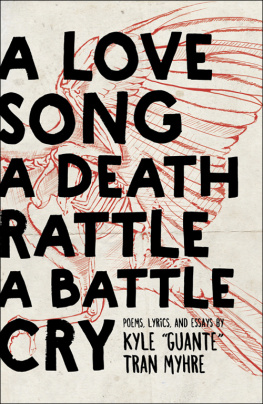Janwillem De Wetering - The Rattle-Rat
Here you can read online Janwillem De Wetering - The Rattle-Rat full text of the book (entire story) in english for free. Download pdf and epub, get meaning, cover and reviews about this ebook. genre: Detective and thriller. Description of the work, (preface) as well as reviews are available. Best literature library LitArk.com created for fans of good reading and offers a wide selection of genres:
Romance novel
Science fiction
Adventure
Detective
Science
History
Home and family
Prose
Art
Politics
Computer
Non-fiction
Religion
Business
Children
Humor
Choose a favorite category and find really read worthwhile books. Enjoy immersion in the world of imagination, feel the emotions of the characters or learn something new for yourself, make an fascinating discovery.

- Book:The Rattle-Rat
- Author:
- Genre:
- Rating:5 / 5
- Favourites:Add to favourites
- Your mark:
- 100
- 1
- 2
- 3
- 4
- 5
The Rattle-Rat: summary, description and annotation
We offer to read an annotation, description, summary or preface (depends on what the author of the book "The Rattle-Rat" wrote himself). If you haven't found the necessary information about the book — write in the comments, we will try to find it.
Janwillem De Wetering: author's other books
Who wrote The Rattle-Rat? Find out the surname, the name of the author of the book and a list of all author's works by series.
The Rattle-Rat — read online for free the complete book (whole text) full work
Below is the text of the book, divided by pages. System saving the place of the last page read, allows you to conveniently read the book "The Rattle-Rat" online for free, without having to search again every time where you left off. Put a bookmark, and you can go to the page where you finished reading at any time.
Font size:
Interval:
Bookmark:
Janwillem Van De Wetering
The Rattle-Rat
PREFACE
The Netherlands is known as a small country, but what foreigners usually don't know is that even this little speck on the map is divided into eleven provinces. Ten of these parts of a greater whole have been interdependent for centuries, but the eleventh province, Friesland, in the northwest, has liked to keep free of interference. It refused blind obedience to the government in The Hague to the south-and, as this tale will show, it is somewhat on its own today, still stubborn, separate, and in spirit proudly free.
Friesland has its own language, not a dialect, with grammar, verb conjugations, spellings, and sounds different from the Dutch language, which is spoken across its eastern frontier and south of the Great Dike that now connects Friesland with the province of North Holland and its capital, Amsterdam. Friesland's other frontier is the sea. The color of the sea reflects in Frisian eyes, the clear blue of valiant Vikings.
When Roman, Spanish, French, and German armies in turn overran the Netherlands, Frisian guerrillas fought them fairly, one hand clasping the Bible, the other a deadly weapon. Foreign tax collectors never had a good time in Friesland. Seafaring, cattle-farming (the raising of the famous black-and-white cows), superior toolmaking, and the growing of high-quality vegetables are profitable occupations. Why share the gain with useless hangers-on from abroad?
The world is becoming smaller; in time even Frisians had to give in to their neighbors, a little. Differences, however, are still obvious. If the Netherlands is clean, Friesland is cleaner. If the Netherlands has good dikes, Friesland has better dikes. If the Netherlands has few murders, Friesland has almost none.
Now what would happen if a Frisian was foully killed in wicked Amsterdam?
The Amsterdam Murder Brigade, led by its old commissaris, would go after the killer, with a vengeance, for the commissaris was bom in Friesland.
A commissaris is a high-ranking officer; there's only one higher rank in the Municipal Police-chief constable. Under a commissaris work chief inspectors, inspectors, noncommissioned officers such as adjutants and sergeants, and constables first-class or second-class. The Netherlands outside the cities is policed by the State Troopers, with military ranks; then, to complicate matters a little further, there's the Military Police, sometimes known as the Marechaussee, which guards frontiers, protects the Queen, and disciplines the fighting forces. In case of a crisis-and a murder is a Dutch crisis-all policemen work together and their territories overlap.
\\\\\\\ 1 ///////
Doeke Algra,born in Menaldum, Friesland, twenty-eight years ago, was experiencing feelings of extreme happiness. He had been uplifted by such euphoria before, when, on his father's lap, he was watching doggies. There were never any doggies, but their mysterious absence was part of the happiness. Doeke Algra, Sr., at that time filled with the strength of his young adult life, had to work hard for a living and liked to relax after dinner, and little Doeke preferred to jump and wriggle. He could sit still but only if there was a Purpose. "The doggies will be coming by the window in a minute," father Algra would say and cuddle his offspring, and together they kept looking through the narrow window of a lowly laborer's cottage set between gnarled willow trees, and enjoyed each other's warmth while the doggies didn't come.
Protective warmth-that had returned for a few moments while Constable First-Class Algra looked over the water of Amsterdam's Inner Harbor from Prince Henry Quay. Policeman Algra, detailed with the uniformed section of the Red District Station, wasn't on active duty at that moment, somewhere between 2:00 A.M. and five minutes later-or perhaps he was, for a cop serves the community twenty-four hours a day, and Doeke was therefore equipped with his gun and identification, although he wasn't dressed in uniform. He wore a leather windbreaker and tight jeans. The pistol was hidden under his armpit. The plastic ID, adorned diagonally with the red, white, and blue of the Dutch flag, stating clearly that the bearer was official, hid in the breast pocket of the windbreaker. His ever-ready social conscience hid in a haze of Frisian jenever, a herbal variety of Dutch gin, the vaporous remnants of a fair number of drinks poured till half an hour ago in Jelle Troelstra's bar. Troelstra was Doeke's guardian and the owner of a brown hole-in-the-wall at the Old Side Alley. Whenever Doeke was stricken by homesickness, he visited Jelle.
"Jun," Jelle would say then, meaning "evening" in Frisian and nothing at all in Dutch. After that they would converse in their very own lingo, a remedy against the pains of having to live elsewhere. Jelle was the listener, sharing Doeke's lament in silence. Doeke would complain, about Amsterdam's vicious vice, about the coarseness of its public women and the violent greed of the quarter's black pimps. While Jelle listened he made the earthenware jar ofjenever gurgle: first and last glass on the Ms. At times Jelle, the comforting provider of liquid solace, sweated, for he still suffered from swamp fever; and sometimes he would rub his thigh where an old gunshot wound hurt him. He had contracted the fever in the tropical hell of New Guinea, and the shot was fired by a mounted Cossack. Both Jelle and Doeke were martial Frisians, but Jelle no longer discussed his violent quest, for he had fought on the wrong side-which was the right side a long time ago, as he had honestly believed during those far-gone days. He had been a sergeant in the Netherlands SS Legion during World War II, and had defended the flanks of a German transport against irregular Russian troops, galloping on the snow. Jelle had once fought for Greater Europe and was rewarded with hard labor, building a road through the jungle of a useless colony. Doeke was still fighting for peace in Amsterdam's inner city and wasn't rewarded at all. All human bravery leads nowhere; Jelle had known that truth for a while; Doeke still cherished ideals. Doeke didn't know that Jelle had been a well-meaning traitor. He didn't know either that Jelle had been born in Hallum, a village close to Doeke's own Menaldum. When asked, Jelle would place his origins in Anjum, a small town well away from the truth. The farther the better. Doeke knew no one in Anjum.
The exiled Jelle comforted Doeke, who served humanity abroad. The barkeeper's silence soothed the younger man.
Jelle's patient quietness and the jenever's glow now wanned Doeke's soul from a hot point in his stomach; ambling about, he had reached the Inner Harbor, where nothing was in view except an expanse of gray, swelling water. The gray movement reminded him of shreds of fog that had caressed the windows of his parents' little house, in the dreamtime when he was secure in his father's embrace.
There he stood, legs apart, hands on his back, staring peacefully across the low, slow waves.
Something should happen now, Doeke thought, something pleasant. Perhaps he expected a glorious vision. Alcohol releases brakes, liberates happy insights that will flame from the soul and burn away the daily pain.
When exactly did he see the floating fire? Doeke couldn't remember later on, when he had to admit, somewhat sillily, while being interrogated by detectives, that his perception had been rather foggy, due to his abuse of herb-flavored liquor.
Something was burning, the sharp flames cutting through the fog, and the something was moving along with the slow swell of the waves. Doeke had been raised religiously, and remembered that the Dear Lord, in early times, was known to walk on water; there had also been a burning bush of brambles, and angels were about, carrying burning swords. It was therefore quite believable that Doeke associated the happening of that night with heavenly instruction, and that he hadn't immediately thought of an ordinary fire. A fire on a ship? No-he was focusing now-on a small boat.
Font size:
Interval:
Bookmark:
Similar books «The Rattle-Rat»
Look at similar books to The Rattle-Rat. We have selected literature similar in name and meaning in the hope of providing readers with more options to find new, interesting, not yet read works.
Discussion, reviews of the book The Rattle-Rat and just readers' own opinions. Leave your comments, write what you think about the work, its meaning or the main characters. Specify what exactly you liked and what you didn't like, and why you think so.


